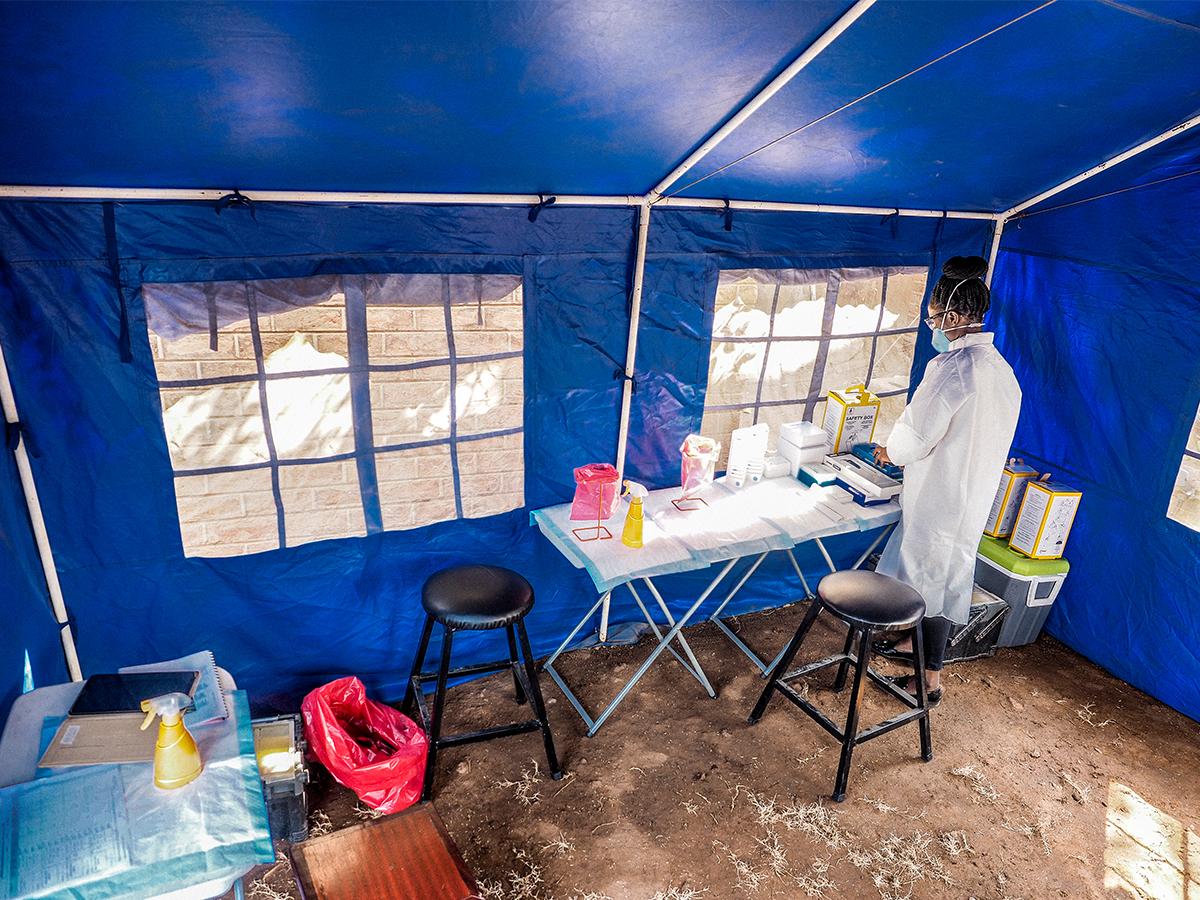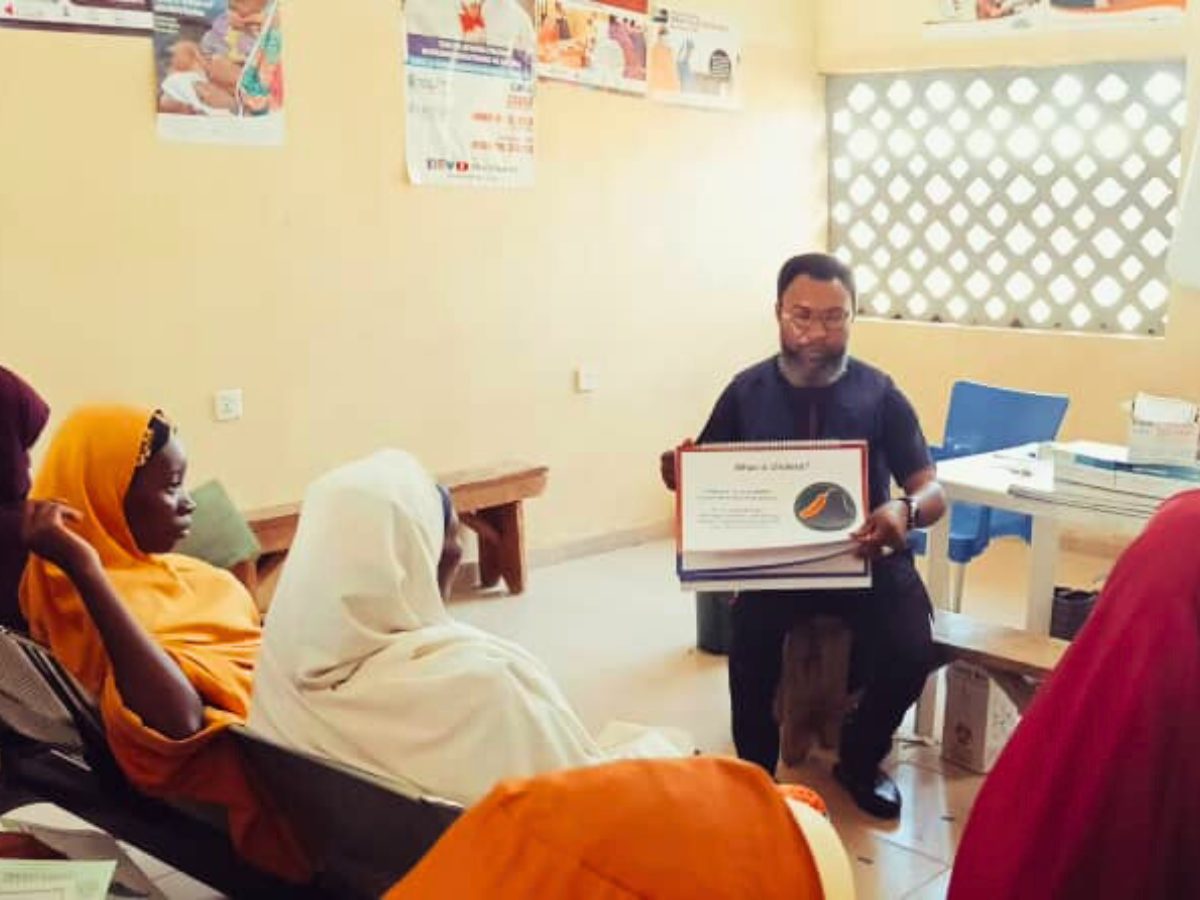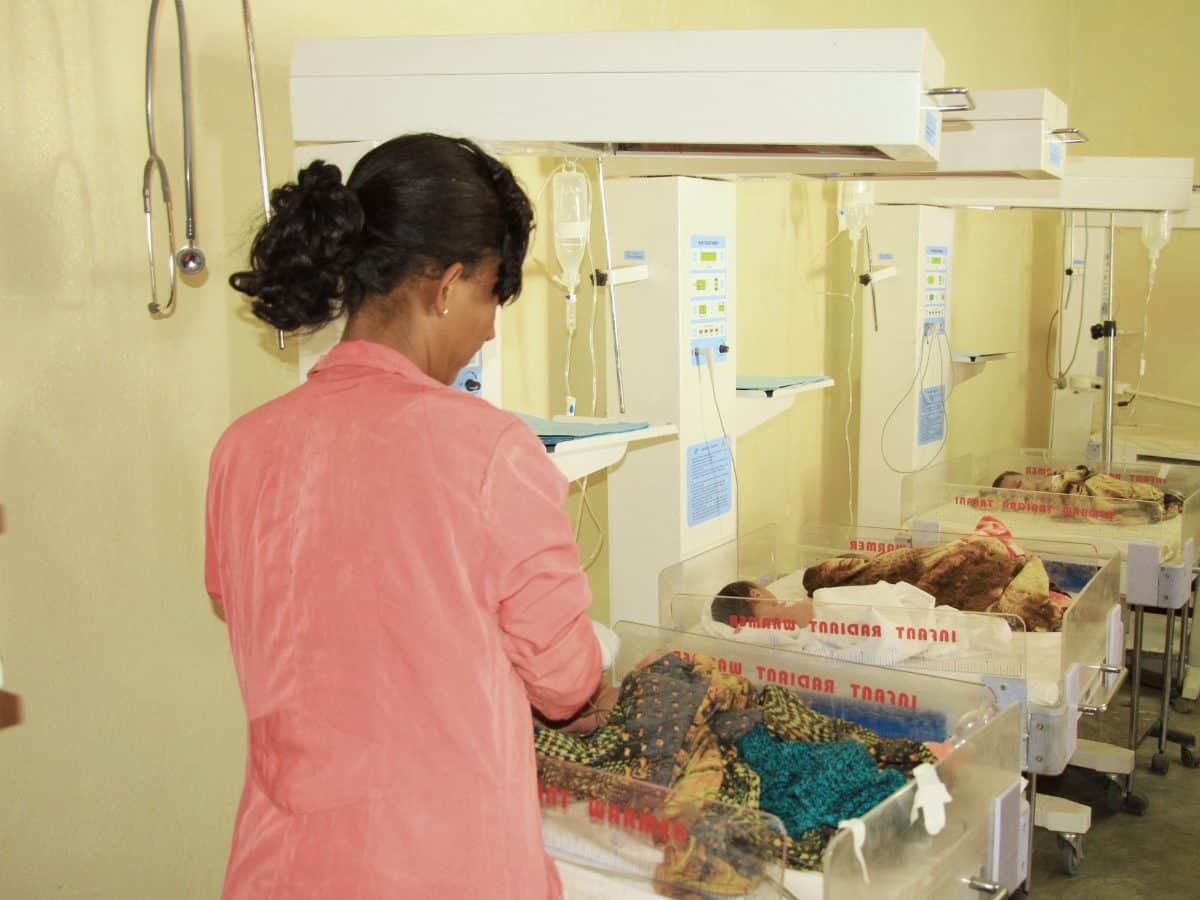Earlier this year, when the SARS-CoV-2 pandemic emerged as a threat to millions of people around world, ICAP at Columbia University quickly mobilized to mount a comprehensive response to COVID-19- in vulnerable countries – including supporting prevention trials, improving access to testing, assessing best forms of treatment, and conducting disease surveillance.
SARS-CoV-2 surveillance, one of the major response areas, plays a vital role in tracing new infections; understanding more about how the pandemic disproportionately affects certain communities over others; providing insight around herd immunity; and guiding resource allocation.
With extensive experience in HIV surveillance through case-based surveillance, biobehavioral surveillance among key populations, recency testing, and population-based assessments, ICAP is well-equipped to take on this critical work.
ICAP’s current SARS-CoV-2 surveillance portfolio falls into two categories: diagnostic testing and seroprevalence surveys. Diagnostic tests target individuals who may have come in contact with an infected person, also known as contact tracing, and guide how resources are distributed based on where they are most needed. Seroprevalence surveys, or surveys that assess how many people in a community have antibodies against SARS-CoV-2, are more community-focused and provide details on herd immunity and the overall impact of the pandemic.
Recognizing the urgent need to improve understanding about the pandemic, ICAP has rapidly ramped up SARS-CoV-2 surveillance studies in the United States, Lesotho, Malawi, and Cameroon.
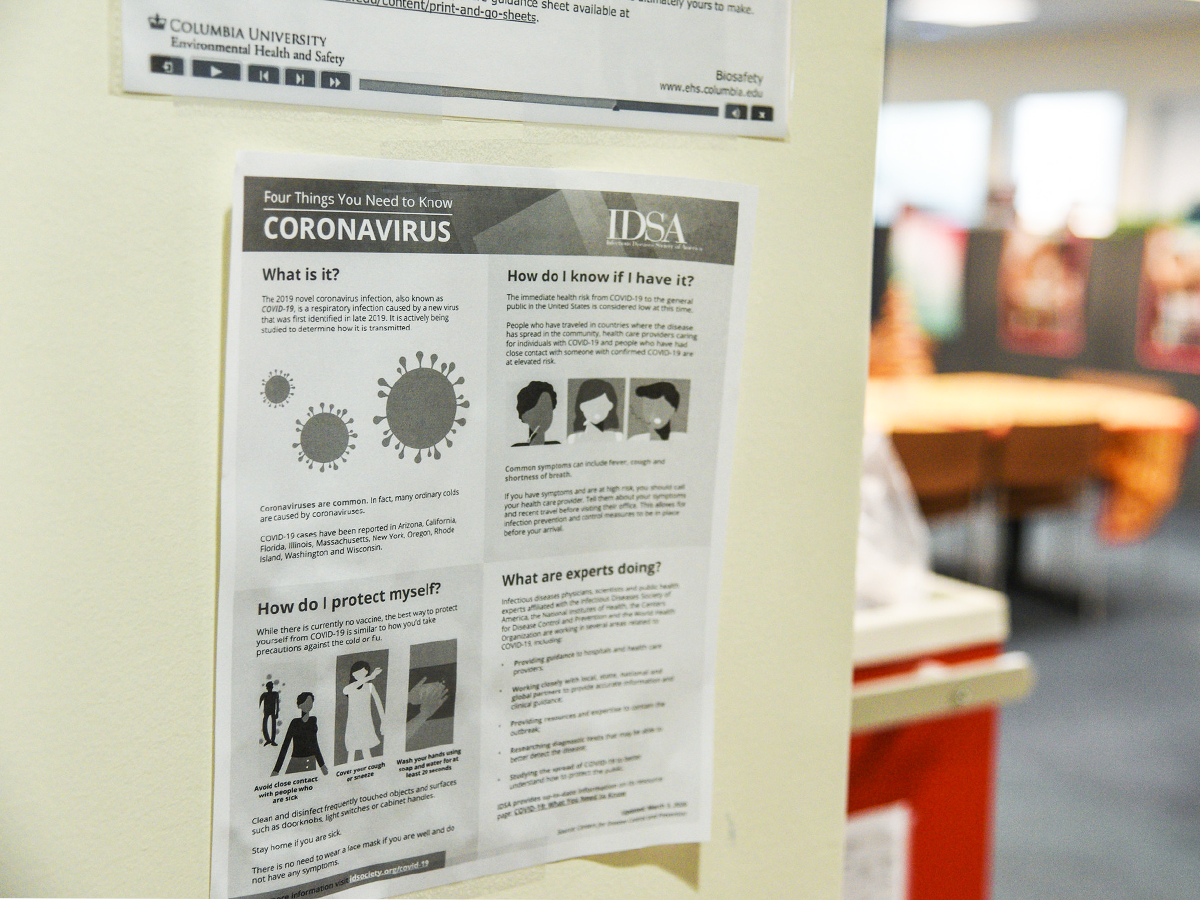
United States
In the United States, ICAP is part of the Community Prevalence of SARS-CoV-2 (COMPASS) study which is funded by the COVID-19 Prevention Network (CoVPN). The COMPASS study aims to look at how SARS-CoV-2 has impacted each community including:
- The role of children in community transmission
- Medical co-morbidities associated with seroprevalence
- Demographic and social risk factors associated with infection
- Attitudes around containment and mitigation measures
- Racial and ethnic health disparities in access to testing and health resources; and
- Impact of SARS-CoV-2 on older adults, including those residing in outpatient or health care facilities
This study is being conducted across 18 sites nationwide and aims to include more than 70,000 adults and children. The results of this study will guide mathematical models of disease progression and inform innovative testing strategies for COVID-19.
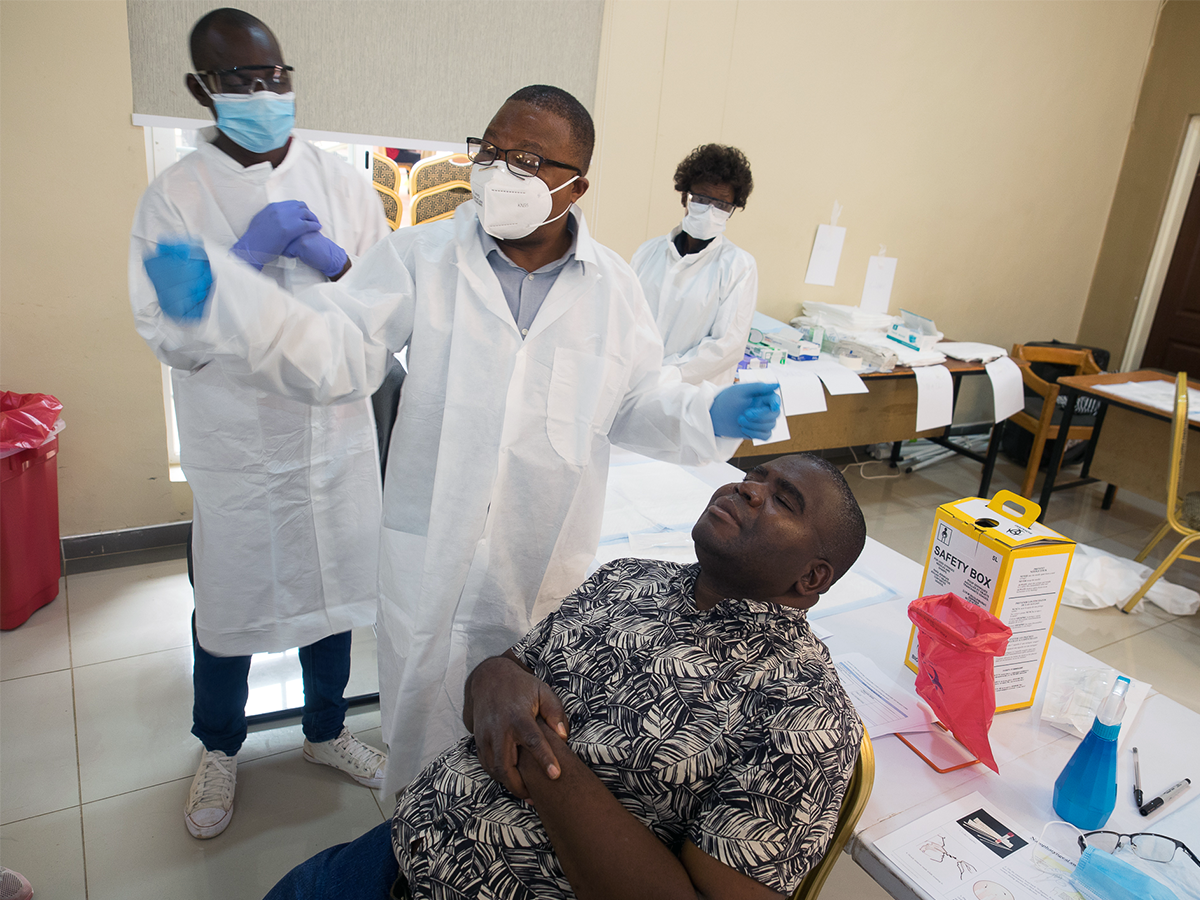
Malawi
In Malawi, the first cases of COVID-19 were registered in April leading to approximately 5,700 cases to date. With the country still in partial lockdown, rapid scaling up of testing is required to secure containment and understand community spread of COVID-19. In response, ICAP is collaborating with the Malawi Ministry of Health (MoH) and the U.S. Centers for Disease Control and Prevention (CDC) to conduct COVID-19 sentinel surveillance which will determine the community burden of disease.
The survey is expected to enroll 8,000 participants with and without symptoms suggestive of COVID-19 from 14 facilities across eight districts in the country. Nasopharyngeal swabs and blood samples are collected after a participant is screened, provides consent, and completes a questionnaire on sociodemographic characteristics, past and current COVID-19 symptoms, possible COVID-19 exposures, changes in health-seeking behaviors, knowledge, attitudes and beliefs about COVID-19, and food insecurity.
Collected respiratory specimens are tested for SARS-CoV-2 at MoH-designated testing laboratories and blood samples are stored for future serological testing. The collected data are uploaded to an encrypted, web-based survey at the end of each day.
“To date, we have screened over 30,000 participants and enrolled over 4,000 participants. Response rates for blood and swab collection remain high – at 95% thus far,” says Felix Kayigamba, MD, MPH, PhD, ICAP’s country director in Malawi. “Supervision and data validation checks are continuously done during data collection to further enhance data quality.”
The sentinel surveillance study began on August 26 and is expected to end in October.
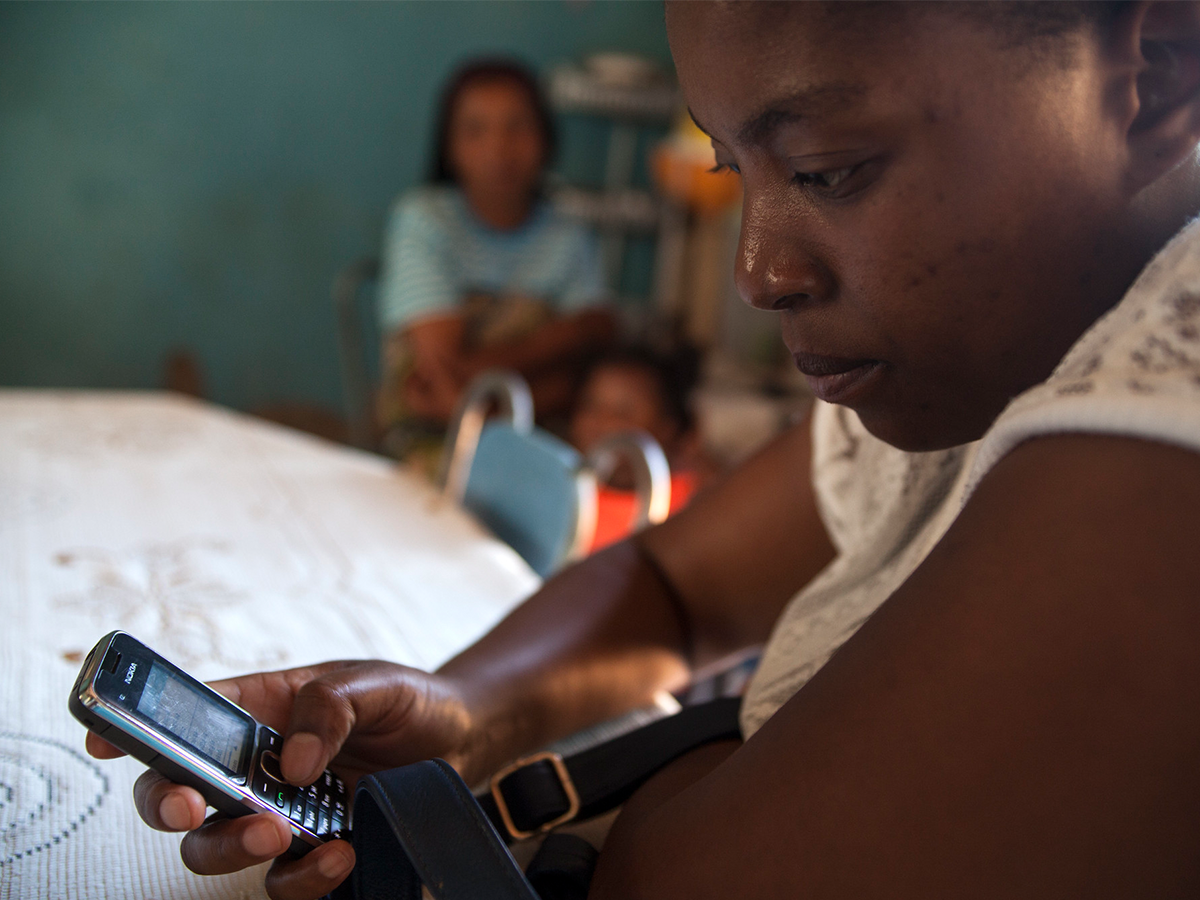
Lesotho
In Lesotho, ICAP is implementing a cellphone-based COVID-19 surveillance system which piggybacks on the 2019-2020 Lesotho Population-based HIV Impact Assessment (LePHIA) survey. LePHIA was conducted by ICAP and the Lesotho Ministry of Health, with funding from U.S. President’s Emergency Plan for AIDS Relief (PEPFAR) through CDC, to measure the status of the national HIV response through household-based surveys.
The COVID-19 cellphone-based survey, also known as ‘LeCellPHIA,’ involves calling 1,700 previous LePHIA participants weekly to ask about influenza-like symptoms they or any household members may have.
“Leveraging our existing partnerships and participant contact information from the LePHIA survey has provided a unique opportunity for us to assess how COVID-19 may be impacting households across the country,” said Abba Greenleaf, PhD, MPH, ICAP’s lead for the project. “Using cellphone-based surveys allows us to rapidly and frequently collect data useful to the Ministry of Health.”
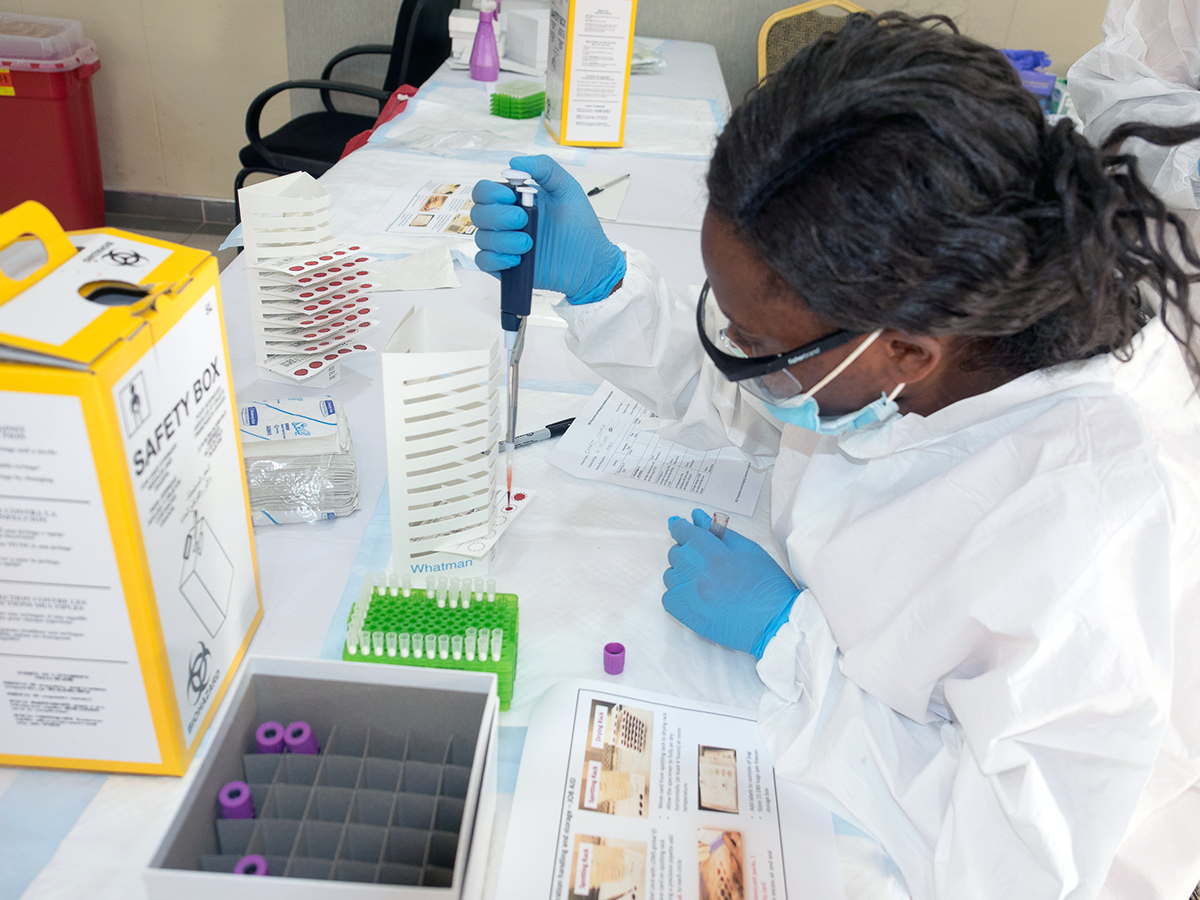
Cameroon
In Cameroon, one of the nations most affected by COVID-19 in Africa, the government has implemented measures to isolate symptomatic cases and conduct testing and contact tracing along with some restrictions around school openings, gatherings, and the use of face masks on public transportation. However, with over 20,000 cases to date, the COVID-19 epidemic continues to escalate in Cameroon and is likely spreading through community transmission.
To understand the extent of COVID-19 transmission in the country, ICAP is gearing up to implement a serosurvey which will seek to estimate the prevalence of SARS-CoV-2 antibodies across ten regional capitals in Cameroon. Starting October 5, approximately 10,000 adults and children (five years and above) will be surveyed in 30 community venues. The survey will group participants into three age strata: 5-19, 20-24, and 50+ years. Secondary objectives include estimating the prevalence of antibodies in different subpopulations, determining risk factors for infection by comparing the exposures of infected and non-infected individuals, and assessing knowledge, attitudes, and behaviors of those impacted by COVID-19.
Participants will be recruited from pre-selected community-based venues in each of Cameroon’s ten regions to ensure some level of national representativeness. Those eligible will be asked to complete a questionnaire and will undergo a blood test to assess seropositivity status. The survey will use a two-step algorithm where people testing positive are re-tested to confirm positivity, which is expected to greatly reduce the rates of false positives.
“The survey will provide more insight into which subpopulations and age groups are being most affected by the COVID-19 epidemic in Cameroon,” said Karampreet Sachathep, PhD, deputy director of survey integration for the PHIA project. “The data will provide a platform for critical recommendations which the Government of Cameroon can use to put forward guidelines and further strengthen existing health infrastructure to tackle COVID-19 in the country.”
In addition, four upcoming surveillance studies are being planned in Angola, the Democratic Republic of Congo, Zimbabwe, and Eswatini.
The surveillance projects being led by ICAP and its partners align with necessary public health principles to optimize care and expand the reach of testing through new, innovative testing methods. One such method includes the wastewater testing program occurring at Columbia University in New York City, where ICAP has its global headquarters. Spearheaded by Wafaa El-Sadr, ICAP’s global director, the pilot program will monitor wastewater from the university residence halls. to detect traces of genetic material from SARS-CoV-2, helping to identify signs of the novel coronavirus before a widespread outbreak of COVID-19 can occur.
These critical surveys are forming a key part of the public health arsenal that ICAP is bringing to bear in response to the pandemic. It is hoped that the data acquired from these varied and innovative approaches to SARS-CoV-2 surveillance will inform new developments and responses to help control the spread of the virus and eventually bring an end to the global health crisis.
A global health leader since 2003, ICAP was founded at Columbia University with one overarching goal: to improve the health of families and communities. Together with its partners—ministries of health, large multilaterals, health care providers, and patients—ICAP strives for a world where health is available to all. To date, ICAP has addressed major public health challenges and the needs of local health systems through 6,000 sites across more than 30 countries. For more information about ICAP, visit: icap.columbia.edu.


